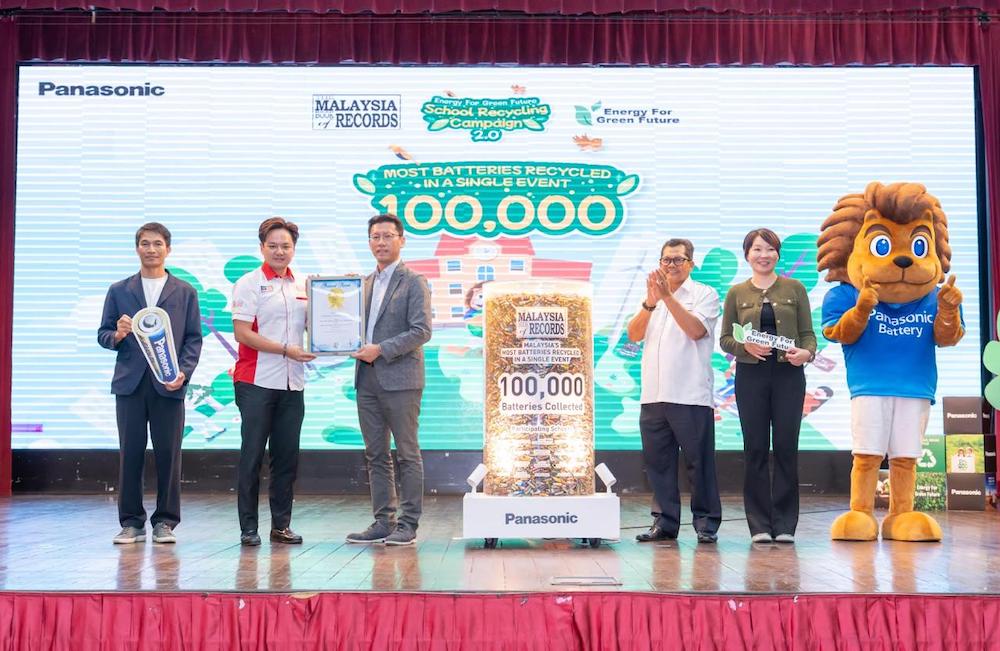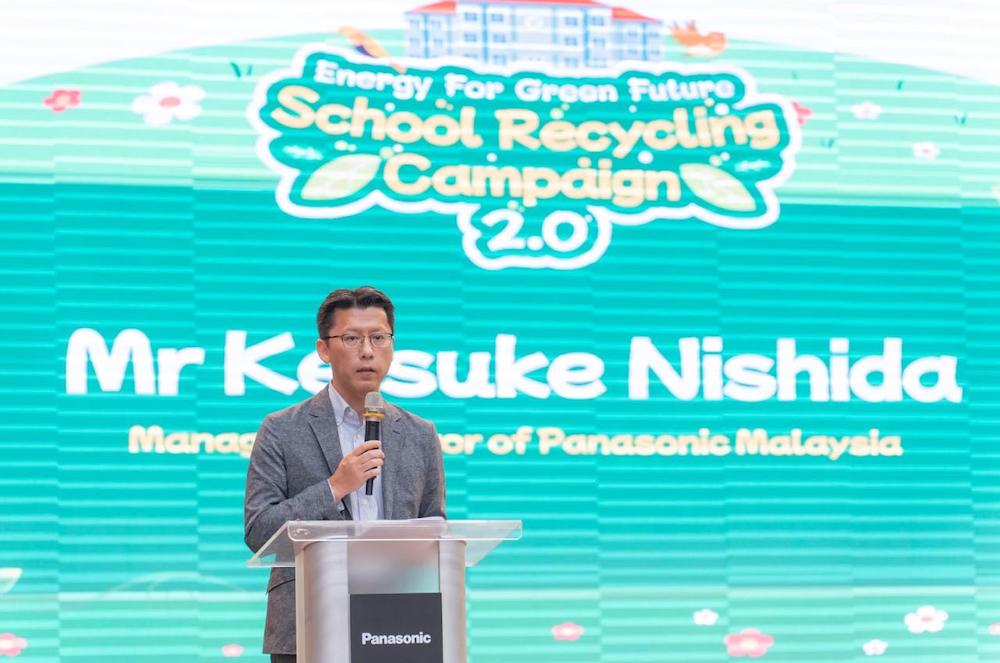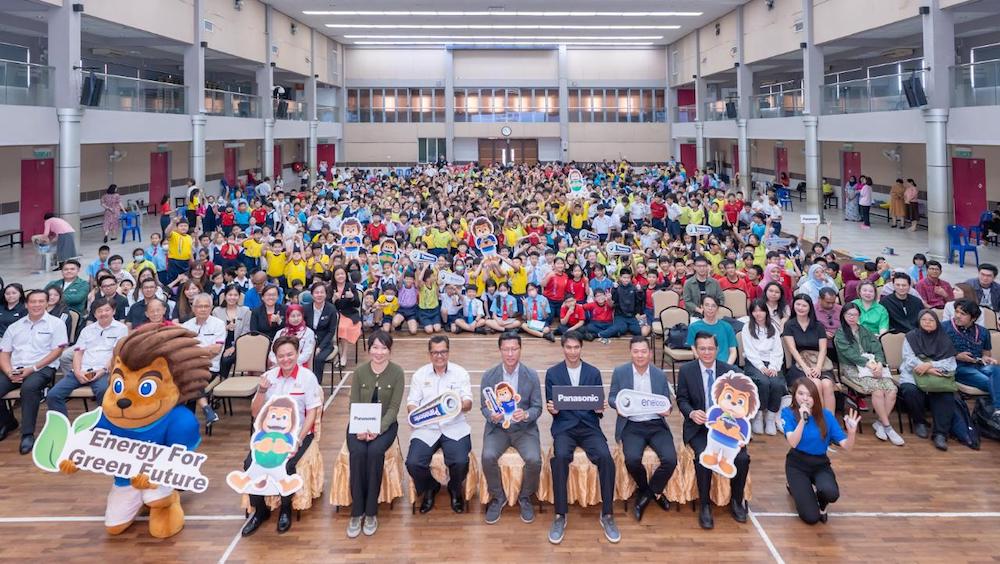What happens when you combine corporate purpose, passionate educators and 30,000 primary‑school students? For Panasonic Malaysia, the result is nothing short of historic.
Through its flagship “Energy For Green Future – School Recycling Campaign 2.0,” the company has collected and responsibly recycled over 100,000 used batteries in a single event—an accomplishment officially recognised by the Malaysia Book of Records (MBR) as “Most Batteries Recycled in a Single Event.”
Beyond the headline‑grabbing statistic, the project is a blueprint for how purposeful partnerships can nurture lifelong eco‑conscious habits while addressing one of the most stubborn household waste streams: used batteries.
Addressing a Hidden Environmental Hazard
Household batteries may be small, but their environmental footprint is anything but. Packed with heavy metals and corrosive chemicals, discarded cells can leak toxins into soil and groundwater, damaging ecosystems and threatening public health.
Keisuke Nishida, Managing Director of Panasonic Malaysia, stresses that awareness is the first line of defence:
“Improper battery disposal is a pressing environmental challenge. By transforming recycling into an interactive learning journey, we’re empowering the next generation of environmental stewards.”
Education Meets Action
Running across 20 primary schools in the Klang Valley, the campaign delivered a suite of immersive activities that turned theory into tangible impact:
- Battery Exchange Programme – Students swapped spent batteries for fresh Panasonic cells, reinforcing the closed‑loop life cycle.
- Interactive Workshops – Experts conducted hands‑on sessions on battery safety, pollution prevention and the science of recycling.
- Mascot Magic – Panasonic Energy’s lovable lion mascot, Leo, injected fun into serious topics, ensuring key messages stuck.
By the programme’s finale at SJK (C) Yuk Chai in Petaling Jaya, bins overflowed with used AA, AAA and button batteries—all destined for environmentally secure processing through recycling partner Jaring Metal Industries.
The Numbers Behind the Record
- 100,000+ batteries collected—equivalent to roughly 2.5 tonnes of hazardous waste diverted from landfills.
- 30,000 students engaged, proving the power of collective action.
- 20 participating schools, each turning classrooms into eco‑innovation hubs.
These figures are not merely statistics; they represent an emerging culture of environmental responsibility among Malaysia’s youth.
Aligned with Panasonic Green Impact
The initiative is a flagship project under Panasonic’s Green Impact framework, a global roadmap that aims to cut carbon emissions and promote sustainable lifestyles across the company’s operations and communities.
Panasonic Energy—the division behind the batteries themselves—has set a bold ambition to be synonymous with environmental contribution. By nurturing proper disposal habits early, the company hopes to create behavioural change that ripples outward to families and neighbourhoods.
The closing ceremony drew stakeholders from government, education and manufacturing:
- En. Yusaini Bin Salleh, Deputy Director of Student Development, JPN Selangor
- Visut Thobpak, Director of Dry Battery Manufacturing, Panasonic Energy Thailand
- Dato Nigel Ng, Director, Jaring Metal Industries
- School heads and local community leaders
Their presence underlines a crucial truth: commercial ventures alone cannot solve environmental issues—cross‑sector collaboration is key.
Creating a Legacy of Eco‑Conscious Youth
While a Malaysia Book of Records title is a remarkable accolade, Panasonic’s leadership repeatedly emphasised that the real victory is cultural. Students who sorted, counted and exchanged batteries gained:
- First‑hand Experience – Understanding the consequences of hazardous waste.
- Empowerment – Seeing personal actions contribute to a national record.
- Sustainable Habits – Carrying eco‑mindsets back to their families.
These outcomes echo Panasonic’s corporate creed: “Create Today. Enrich Tomorrow.”
Scaling Up: What Comes Next?
Buoyed by the campaign’s success, Panasonic is exploring ways to:
- Expand the recycling drive to secondary schools and rural districts, ensuring equitable environmental education.
- Introduce a digital tracking app that lets students log recycled batteries and compete in real time, gamifying sustainability.
- Collaborate with municipal councils to install permanent battery‑collection points in neighbourhoods, closing the loop beyond school grounds.
How Brands Can Replicate the Model
Businesses looking to emulate Panasonic’s impact can adopt three guiding principles:
- Start with Education, End with Action – Content alone rarely changes behaviour; pair lessons with hands‑on tasks.
- Leverage Youth Networks – Children become catalysts, influencing parents and communities.
- Celebrate Milestones Publicly – Recognition such as an MBR title inspires wider participation and lends credibility.
Panasonic’s record‑setting battery recycling campaign proves that environmental stewardship and youth empowerment are natural allies.
By merging education, corporate commitment and community spirit, the company has not only diverted toxic waste from landfills but also planted seeds of sustainability in thousands of young Malaysians.
As the world edges closer to critical climate thresholds, initiatives like Energy For Green Future show that meaningful change is possible—one battery, one student and one school at a time.
Keywords :
- Panasonic battery recycling Malaysia;
- Energy For Green Future campaign;
- Malaysia Book of Records battery recycling;
- Panasonic Green Impact initiative;
- school e‑waste education; youth environmental action Malaysia;
- battery disposal awareness;
- 100000 batteries recycled;
- Panasonic Malaysia sustainability;
- student recycling programme






